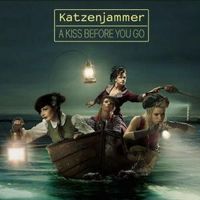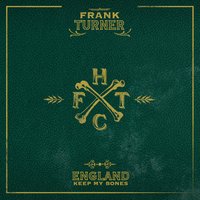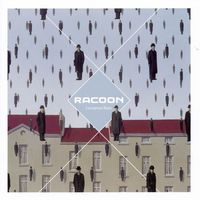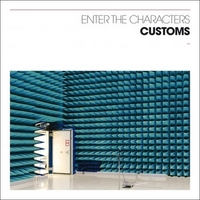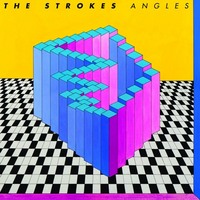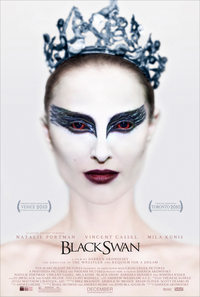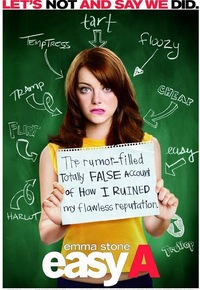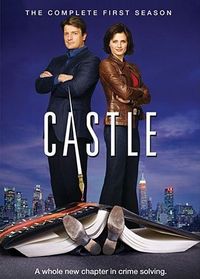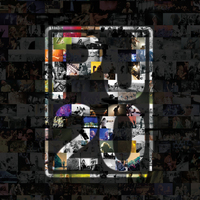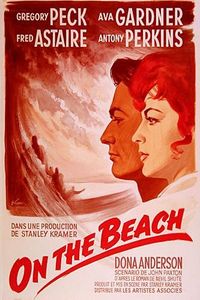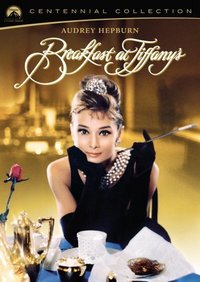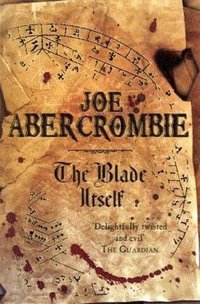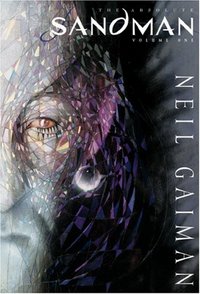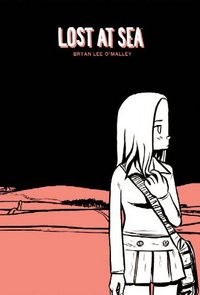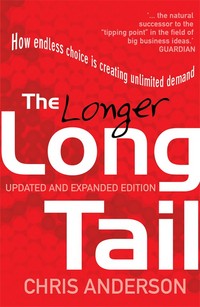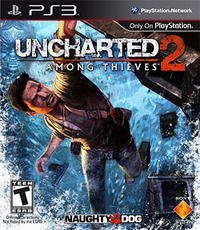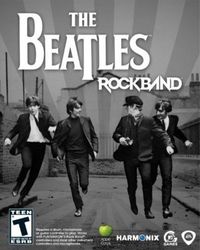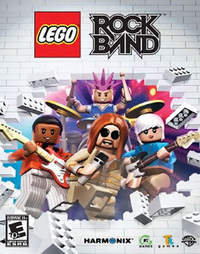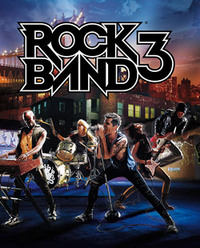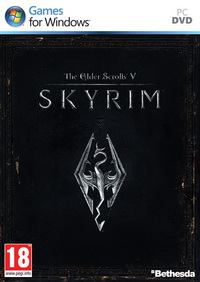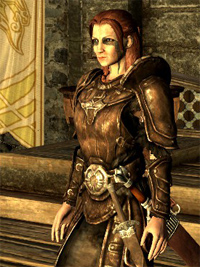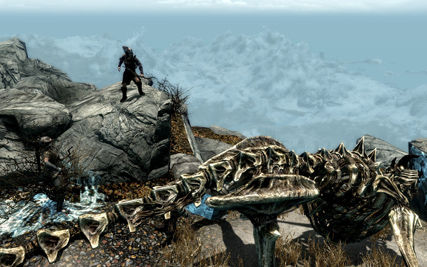This entry is as much a result of the Katzen's performance this fall in the Effenaar as the album proper. Like their debut Le Pop, their sophomore effort is an eclectic mix of folk, gypsy, rock, baltic beats, pop, country and probably a lot more. It certainly isn't coherent and there are some filler songs, but it certainly is fresh and varied. Some songs take a while to appreciate, like their cover of Genesis' Land Of Confusion. Upon first listen I dismissed it as a failure but it grew upon me. Now I think it's one of the best songs, right next to the catchy I Will Dance (When I Walk Away) and Rock-Paper-Scissors.
However much I like the album, I doubt it will enchant people who haven't seen the band live. Seriously, if you have the chance go see them. It's a bit chaotic and the sound isn't as crisp as on the albums, but the girls' energy is infectious and their presence utterly charming. Indeed, the rawness of a live performance enhances a lot of their songs. The a cappella God's Great Dust Storm sounds good on the album, but it'll bring tears in your eyes live. (There are some good recordings on YouTube if you don't believe me.)
The Best Of 2011
Last updated on 17 November 2013.
This article is both familiar and something new. The familiar part is that I've written five earlier editions of these "Best Of The Year" articles. The new bit here is that those are all written in Dutch and this one is, as you've no doubt noted, written in English. No big reason for that. I guess I feel like my English writing is a bit rusty. Writing this in another language may also spice it up a bit — I felt like the last edition was a bit stale, even though the reactions were rather positive.
For those new to the game, here are the rules. In this article, I write about the music I've listened to, the movies I've seen, the books I've read and the computer games I've played. Not all of them, just those that made an impression. Most of it is positive. While it can be fun to write a scathing review about something, I'd rather recommend stuff to you, dear readers.
There's no rule that the things I write about have to have been published this year. Indeed, that would shorten the list considerably. I will try to argue my choices but it's just my opinion. I'm not an official reviewer, I'm not paid to do this, I'm not a journalist — this is my part of the web, however small it may be, and I can recommend what I want.
With that out of the way I can safely link to the previous editions. One last warning: these are all written in Dutch.
Some further info before diving into the good stuff. The pictures (mostly covers and posters of the media discussed) link to various websites where you can read more about the entries. Cover art of the music albums link to AllMusic, while the movie posters link to the Internet Movie Database. Book covers link to the publisher's sites as I don't know of any good literary reference in similar vein. The few game covers link to MetaCritic. I'm sure you can find out more about the items discussed below, if you're so inclined. As always, you're welcome to ask me more about the list face to face.
Music
On to the list proper, starting with some music. I didn't go to Lowlands this year and I think that's one of the reasons I didn't discover a lot of new artists. Indeed, only one artist out of five is new to me: I was already familiar with the other four.
Katzenjammer - A Kiss Before You Go (2011)
Frank Turner - England Keep My Bones (2011)
Ever since my brother and I saw Frank open for The Levellers we've been big fans. Frank plays singer-songwritery stuff but with a kick, folk tinged with Frank's punk roots. I think he's best when he's shouting out bar room anthems but that's selling his heartfelt ballads and sad introspective slice-of-life's short. Also, bar room anthems don't usually have lyrics this great, either:
And I still believe in the saints,
Yeah, in Jerry Lee and in Johnny and all the greats.
And I still believe in the sound,
That has the power to raise a temple and tear it down.
And I still believe in the need,
For guitars and drums and desperate poetry.
And I still believe that everyone,
Can find a song for every time they've lost and every time they've won.
While my brother and I always felt Frank had "it", it took some albums before it really showed on record. England Keep My Bones shows off his chops, though. First off, the songs are more varied. The quote above comes from I Still Believe, a rollicking raucous song driven by a piano. But there's also an a cappella history lesson (English Curse), a satirical pseudo-gospel Glory, Hallelujah and a lot of personal lyrics. Furthermore, the sound is bigger and the arrangements more intricate.
Racoon - Liverpool Rain (2011)
Racoon never really equalled the quality of their sunny debut Till Monkeys Fly or its sequel Here We Go Stereo. There, I said it. Sure, their big breakthrough came only with their third disc Another Day and the monster hit Love You More. (Here's a lovely version with Ilse DeLange.) Another Day was a less rockin' affair, as was 2008's Before You Leave. It had some good songs but overall, it lacked punch and I'm not just talking about the absence of electric guitars.
While Liverpool Rain doesn't return to the whimsy of Monkeys or the raw Stereo, it has nice big sound and a sense of urgency. The sound comes courtesy of the London Chamber Orchestra and the Abbey Road studios. The basics of the songs are still very much Racoon, with simple structures and elegant melodies, but the production gives me something back that lacked in their previous efforts. (Yes, the cover is a variation on La Golconde by René Magritte. No, I have no idea what the connection is between the Belgian surrealist and Racoon.)
The Customs - Enter The Characters (2009)
It took, I think, three repeated recommendation from my brother for me to check out this album. I'm unsure in retrospect why I didn't listen earlier. Enter The Characters is the debut from the Belgian rock band The Customs, and it reinforces the notion that Belgians, and the Flemish in particular, know how to make rock and pop music which sounds grand. The press often compared them to Interpol (I wouldn't know), Editors (hmm, agreed) and Joy Division (agreed, even though I've heard few songs from that band). The album has an echoing, dark sound that's rife with sweeping gestures. There are few bad songs on it: most of the songs are catchy and energetic. Bonus points for some of their titles, like Where The Moon Spends His Days and There's Always Room For One More Poledance.
The Strokes - Angles (2011)
I don't know much about The Strokes. I love their debut, the ominous-named Is This It, which is filled with a bare-bones approach to rock. Not quite new wave, or punk, or rock, it combines everything in a precise way that has no fat, no filler and clocks in at 36 minutes.
Angles is more or less the same, minus 2 minutes running time, plus a bit more polish. It's not mind-blowing but still worth an inclusion in this list, methinks.
Ridiculously catchy and campy song: Royal Republic - Full Steam Spacemachine
Movies
I was tempted to add trailers for every one of the films / series I mention below, but decided not to. The Internet Movie Database entries for these usually have trailers and since you can access those by clicking the cover pictures, it's all just a moment away.
While I didn't see as much stuff as last year, the list is still 77 movies, documentaries and TV series long. In it is a lot of good stuff, but also a lot of unremarkable stuff. What follows are some things that stood out in one way or another.
Black Swan (2010)
Director Darren Aronofsky's Pi was a weird, trippy flick about a mathematician who's obsessed that "everything around us can be represented and understood through numbers." The protagonist becomes paranoid and goes insane. The editing has many quick cuts, the footage is crummy and the soundtrack (a drum and bass masterpiece by Clint Mansell) pulls it all together, resulting in an indie classic. Aronofsky followed this up by Requiem for a Dream, a great movie which I'll probably never see again as it's so horribly depressing.
After that came The Fountain, which I didn't see, and The Wrestler, which I found to be overrated. The latter shows us the extremes a wrestler will go through to perform his craft. Black Swan has elements of these movies and certain themes are repeated, especially Pi and The Wrestler's. Swan's protagonist Nina (an Oscar-winning role by Natalie Portman) is a ballerina and obsessed with her craft. She is technically proficient and therefore a perfect match for the role of the White Swan in Tchaikovsky's Swan Lake. However, that ballerina also has to be able to embody the sensual Black Swan, something Nina is woefully unprepared for as she has no life apart from the ballet. Also present is her mother, a failed ballerina who's living vicariously through Nina.
The movie is very well made, with Aronofsky showing that he's learned a lot since Pi. That earlier effort was almost a masterpiece, being a very rough gem, limited by the low budget and inexperience. Black Swan shows us what Aronofsky can do with more money, even better actors and more sophistication.
Easy A (2010)
I like high school movies. I like smart high school movies even more. I tracked down Easy A primarily for Emma Stone, who impressed me in Zombieland, but was pleasantly surprised by it. As with many movies in this genre, you'll have to suspend your disbelief at certain points but it's entirely enjoyable if you pull that off.
Ms. Stone performs as Olive, a girl who lies about having lost her virginity to some college guy. Scandal! However, she's later approached by a male homosexual friend who's tired of being picked on. They agree that she'll pretend to have sex with him on a party. Hilarity and hijinks ensue, as they are wont to do.
Now read these lines:
The rumors of my promiscuity have been greatly exaggerated. I used to be anonymous, invisible to the opposite sex. If Google Earth were a guy he couldn't find me if I was dressed up as a 10-story building.
Pretty cutting-edge stuff, huh? A high school girl feeling anonymous. "Who am I? What does it all mean? Why am I here? Blah." But don't worry, this isn't one of those tales. Though it sure started out that way.
This is the opening voice-over, just to show you that the writing is pretty good. Sure, it's not Aaron Sorkin but there's a lot of witty banter and the actors pull off its delivery.
The movie gets additional bonus points for Olive's parents, played by Stanley Tucci and Patricia Clarkson. Sure, they're unbelievably hip and understanding and eccentric, but it's nice to have movie parents be fully understanding and supportive for once. As Roger Ebert puts it: "[they] join Juno's parents in the Pantheon of Parental Admirability."
Castle (Season 1-3) (2009-2011)
I'm not the biggest fan of murder mysteries or cop shows. I am, however, a fan of Nathan Fillion. I first saw him in Buffy's seventh season and after that in Firefly and Serenity. (Yes, I'm a fan of Joss Whedon, why do you ask?) The guy has charm and seems genuinely likeable, with a great sense of humor. Commentary tracks and behind-the-scenes montages are biased indicators but it's all I've got. It seems someone in Hollywood agreed with me and decided that Nathan deserved his own show: Castle.
I'll let the Internet Movie Database introduce the show's concept:
After a serial killer imitates the plots of his novels, successful mystery novelist Richard "Rick" Castle gets permission from the Mayor of New York City to tag along with an NYPD homicide investigation team for research purposes.
Not the greatest of premises but Nathan is helped by genre-savvy and humorous writing, strong characterisation, and above all a terrific cast. All characters, from the stern-but-fair police captain, the sassy forensics expert, the two cop buddies, the eccentric mother to the a-little-too-perfect daughter: they're all cast very well. The biggest ace up the show's sleeve, however, is Stana Katic as Detective Kate Beckett — the leader of the investigation team and Castle's muse. There's a sparkling chemistry between Nathan and Stana which makes the somewhat stale story arcs of disparate people thrown together by fate and the gradual change of Beckett's feelings from antipathy towards affection, believable and a joy to behold.
Which is just as well since the show took some time to find its feet. The first season is rather introductory and relies heavily upon the "murder of the week" plots. A murder is committed before the opening credits and we know that Castle and Beckett will figure it out before the end credits roll. This doesn't get boring soon since it's spiced up by secondary plots but near the end of the first season I found myself looking for a bit more. Again, someone agreed with me since the number of episodes with references to bigger, overarching concerns grew steadily. I was hooked and rushed through the rest of the season and the following two. Season four is now airing and I'm waiting for it to finish so I can see it back-to-back.
Bonus: spot all the references to Firefly Nathan put in.
Pearl Jam Twenty (2011)
I've been a fan of Pearl Jam since Ten (read my thoughts from 2001 on that album here, in Dutch). I admit I haven't been as much of as fan as I used to be since after the release of Yield. However, I still listen to all their albums regularly and I was impressed by 2009's Backspacer and reissue of Ten.
Pearl Jam Twenty is a feature-length documentary on Pearl Jam's twentieth anniversary by Cameron Crowe. And well, I guess there needs to one more disclaimer: Cameron Crowe might be my favourite director. I adore his motion pictures, particularly Singles and Almost Famous. I even appreciate Elizabethtown, a movie slammed by the critics and I can see why. Thing is, Crowe has likeable characters, a rather rosy-tinted worldview and has a brilliant ear for soundtracks. So when PJ20 was announced I sat up and took notice. It's actually the first movie I saw in the theatre on my own, imagine that.
The documentary is rather workmanlike and won't be remembered for any innovation. Crowe sticks to the basics and the tried-and-true arc of many rock documentaries. Old footage is mixed with current-day interviews with the band and live performances. The narrative is mostly chronological with the band looking back.
A fan will know pretty much every major event in Pearl Jam's long career but it is nice to have them all mentioned: the birth of the Seattle scene and their emergence, the influence of Mother Love Bone, their friendship with Soundgarden, the release of Nirvana's Nevermind. Next up are their fights with Ticketmaster (with footage from the hearings), their friendship with Neil Young, the drama at Roskilde. It's a lot but there could've been more: nothing is mentioned about the many side projects like Wellwater Conspiracy or Vedder's soundtrack for Into The Wild. Crowe doesn't delve into the creative process either.
Crowe had access to a lot of material, both old and new. A personal highlight was seeing Eddie Vedder's legendary crowddive on Pinkpop 1992. Crowe is also up front about the fact that he is both a fan and a friend of the band. Don't expect a critical look because this isn't it. On the other hand, it's probably the reason why the band is so relaxed and able to mock themselves a bit. There's a hilarious fragment where guitarist Stone Gossard unearths a Grammy statue out of the dark depths of his basement, mentioning that this is indicative of the way he thought of the Grammy's.
The most important thing is the music, of course, and it's A-OK. There's hardly a silent moment as the soundtrack is absolutely crammed with Pearl Jam songs. Next to the studio versions there are a lot of other renditions, from early demo's to live performances.
I can't honestly say this is a great documentary, but I had a great time watching it.
On The Beach (1959) & Breakfast At Tiffany's (1961)
Two entirely different motion pictures. Just about the only similarity between them is that they are old.
On The Beach is a science fiction movie in which an atomic war destroys life as we knew it. Remote Australia is a temporary safe haven for an American submarine. The captain and a local woman fall in love while they know the end is nigh.
These days, Breakfast At Tiffany's is probably better known as that one hit song by Deep Blue Something, but once it was a romantic comedy/drama featuring Audrey Hepburn. She plays Holly Golightly, one of the earlier manic pixie dream girls. She's the star of every party and the object of desire for all men, but deep inside she's very sad and vulnerable.
Neither film has aged very well. Their pace and rhythm is unlike today's works, and the sentiments expressed in them are rather alien. However, I'd like you to watch them for their main characters show something that's currently lacking in a lot of movies: dignity. Even in the face of nuclear holocaust (or emotional disaster) the characters remain graceful and composed. I'd call it something British, except these are both American movies.
Honourable mentions
Distilling a top five out of so many movies is hard, especially since there were few movies that had as much impact upon me as 2010's The Dark Knight or Scott Pilgrim. That doesn't mean the year was crap movie-wise — there were a lot of not-quite-grade-A-material movies:
- The Runaways (2010)
- Having never seen Twilight I could see both this biopic and Adventureland without immediately seeing Kristen Stewart as her Twilight character Bella. In retrospect I'm very glad of this since she can actually act (especially in The Runaways) but there's no evidence of that in Twilight. If you didn't guess yet, this movie is about the 1970s all-woman rock band.
- Adventureland (2009)
- A charming coming of age flick starring Jesse Eisenberg and Kristen Stewart.
- Rachel Getting Married (2008)
- At first this was on the shortlist for a longer description, but I couldn't tell a lot about it. It's a drama about a family's dark sheep who comes out of rehab to attend her sister's wedding. Of course, there's a lot of old hurt that needs sorting out with the various family members. I was particularly impressed by the two female lead performances by Anne Hathaway and Rosemarie DeWitt.
- The Dreamers (2003), Franklyn (2008), Cracks (2009)
- Or, "Jake looks for more movies with Eva Green in them." Three wildly different movies, each with something different going for them besides Ms Green. I didn't know what to think of The Dreamers but it affected me. It's set against the 1968 student riots in Paris, but at the same time it's a declaration of love for (European) cinema and a look at a confusing and at times repelling love triangle. Franklyn, on the other hand, is a schizophrenic tale, mixing several storylines in both current-day Britain and a fantastical, futuristic metropolis. The art direction here is really stunning. Cracks, in comparison, is much tamer, but still an interesting psychological drama.
- Happythankyoumoreplease (2010)
- Singles but more off beat, shinier and with a less awesome soundtrack.
- Låt den rätte komma in (2008)
- There are hundreds of movies dealing with vampires (spoiler!) so it's quite amazing to see that there are still interesting takes on it. Remade in Hollywood as Let Me In but I haven't seen that one so no idea how they compare.
- Sucker Punch (2011)
- Take some concepts from Inception, the director of 300 and Watchmen, traces of Kill Bill, one part World War I and nine parts anime, and Sucker Punch might be the result. Which is to say, a heady, messy power trip fantasy with some psychodrama, but everything not quite there yet.
- The Others (2001)
- A ghost story but with a twist, and the excellent Nicole Kidman as the leading lady.
- Thor, X-Men: First Class and Captain America: The First Avenger (all 2011)
- I think the whole superhero movies thing is getting a bit stale by now, or something is lacking from this trio. All three are perfectly adequate movies (with First Class taking the top honours for its splendid mix of superheroes and 1960s James Bond), but they miss a certain something that the first two X-Men movies, Daredevil, Iron Man and the two Nolanverse Batmans had. I wonder how the long-awaited The Avengers and The Dark Knight Rises will turn out this year.
The entire list
To give some context to the reviews above, here's the entire list of movies and series I've seen in 2011. All 77 of them. (Here's the list of everything I've seen, if you're into this kind of thing.)
- 21 (2008)
- Adventureland (2009)
- A Guy Thing (2003)
- Alice in Wonderland (1903)
- A Personal Journey with Martin Scorsese Through American Movies (TV 1995)
- Bitch Slap (2009)
- Black Swan (2010)
- Breakfast At Tiffany's (1961)
- Brick (2005)
- Captain America: The First Avenger (2011)
- Castle (Season 1-3) (2009)
- Charlie Bartlett (2007)
- Couples Retreat (2009)
- Cracks (2009)
- Easy A (2010)
- Fast Five (2011)
- Franklyn (2008)
- Friends with Benefits (2011)
- Good Night, and Good Luck. (2005)
- Grosse Pointe Blank (1997)
- Happythankyoumoreplease (2010)
- Harry Potter and the Deathly Hallows: Part 1 (2010)
- Harry Potter and the Deathly Hallows: Part 2 (2011)
- Ironclad (2011)
- Jonah Hex (2010)
- Kiss Kiss Bang Bang (2005)
- Knocked Up (2007)
- Lemmy (2010)
- Limitless (2011)
- Love and Other Drugs (2010)
- Låt den rätte komma in (2008)
- Mad Men (Season 1) (2007)
- Make It Happen (2008)
- Morning Glory (2010)
- Nausicaä of the Valley of the Wind (1984)
- No Strings Attached (2011)
- On the Beach (1959)
- Pearl Jam Twenty (2011)
- Pirates of the Caribbean: On Stranger Tides (2011)
- Rachel Getting Married (2008)
- Sexy Beast (2000)
- Sherlock Holmes: A Game of Shadows (2011)
- Shinobi: Heart Under Blade (2005)
- Six-String Samurai (1998)
- Smokin' Aces (2006)
- Stephen Fry in America (2008)
- Sucker Punch (2011)
- Surfer, Dude (2008)
- Tenacious D in The Pick of Destiny (2006)
- The A-Team (2010)
- The Boondock Saints II: All Saints Day (2009)
- The Dreamers (2003)
- The Guild (Season 5) (2007)
- The Hangover (2009)
- The Hurt Locker (2008)
- The Illusionist (2010)
- The Others (2001)
- The Pillars of the Earth (2010)
- The Prince & Me (2004)
- The Road to Guantanamo (2006)
- The Runaways (2010)
- The Wrestler (2008)
- Thor (2011)
- Transformers: Dark of the Moon (2011)
- Trolljegeren (2010)
- True Blood (2008) (Season 2)
- True Grit (2010)
- Twilight (2008/I)
- Ultramarines: A Warhammer 40,000 Movie (2010)
- Unforgiven (1992)
- Unstoppable (2010)
- Up in the Air (2009/I)
- Wimbledon (2004)
- Without a Paddle (2004)
- Wonder Woman (2009)
- X-Men: First Class (2011)
- Your Highness (2011)
Books
My reading in 2011 can be summed up in three words: "Malazan" and "graphic novels". Sure, I read a lot more but rereading Steven Erikson's The Malazan Book of the Fallen series up until book 8 and exploring graphic novels took most of my reading time.
Joe Abercrombie - The First Law Trilogy (2006-2008)
At first I didn't include this trilogy in my shortlist but I figure it deserves at least a mention. After all, I picked up the second and third book of the trilogy on the strength of the first, The Blade Itself. Here we have Yet Another Fantasy Setting. It has some twists, as we'll find out later, but the first book is mostly concerned with the broad strokes. There's magic (and magi), there's a church, there are nobles, commoners and barbarians. In a welcome breadth of fresh air, it's not so much pseudo-medieval as much as it's pseudo-Renaissance. The book focusses on several characters, switching often between their viewpoints. There's no omniscient narrator so everything we see is filtered through the characters' perceptions. This helps to keep the narrative fresh while the world is introduced, especially since the characters are a diverse bunch. The first book is mostly concerned with building the world and the foundations of the plot, but it's told with a nice pace, vivid characters, good battle scenes and a dash of humour.
So where did it go wrong for me? The final few chapters. That's right, the ending was so depressing that it almost retroactively spoiled the preceding three books. I'm used to crapsack worlds with "grimdark" sensibilities, to characters that can't seem to catch a break and so very "well-rounded" that the list of redeemable qualities seems to shrink with every chapter. However, "enduring" this is often worth my while and makes the pay-off all that sweeter. The characters' hardships are validated. The First Law Trilogy's pay-off is more like yet another punch in the gut. I can't tell more without spoiling the end, but it's not what I was hoping for.
Take that as a warning, not as an anti-recommendation. Not every book should end with flowers and (double) rainbows and this variation is certainly worth reading. Abercrombie does a lot of things well.
Neil Gaiman - The Absolute Sandman, Volume 1 (original issues 1988-1989, Absolute edition 2006)
I've always been somewhat interested in comics, but I guess comics equalled superhero comics for me — The X-Men, Spider-Man and the like. This is rather silly because as any good Dutch kid my childhood was filled with great comics like Suske & Wiske, Gaston (Guust Flater), Donald Duck, Astérix et cetera. With the release of Watchmen as a movie I decided to check out the original and together with brother's discovery of Largo Winch that rekindled the comics / graphic novels fire.
When I researched the comics canon The Sandman came up a lot. I was somewhat familiar with its author Neil Gaiman, as I'm fond of Good Omens, a collaboration with Terry Pratchett. I also read American Gods ("what if the old gods still exist and have moved to the United States") and saw Stardust, a delightful faery tale movie based on his book. So the author was "vetted", as was the premise: a series surrounding the Sandman a.k.a. Dream and Orpheus, the "god" of dreams. I bought Preludes and Nocturnes, a trade paperback collecting the first eight issues and was intrigued. It's a heady mix of horror, fantasy, myth and fables. The first few issues are a bit uneven but after a while Gaiman hit his stride and finds his own voice. It has likeable characters and a lot of background, hinting of a far larger universe. The writing is good, the action well-paced. I wasn't blown away by the art but it is serviceable and in places inspired.
I was, however, sorely disappointed in the colouring. It was so primitive I sometimes could barely make out what I was looking at. After some more research I found out that the earlier issues have been retouched and recoloured since their original publication for something called the "Absolute Edition". The first volume of which collected the first twenty issues, together with a new introduction, Gaiman's original proposal to the publisher, the original character sketches and the original script for issue #19, A Midsummer Night's Dream. Moreover, it's a larger format book with a hard cover. People who know me are aware that I'm a sucker for special editions and won't be surprised that I decided that I had to have it. (They may be surprised by my restraint in that I waited a whole year before acquiring it.)
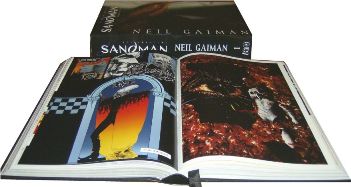 The Absolute Edition was everything I imagined it to be and more. It's a work of art, both in contents and the physical object. Gaiman's stories get better and better once he creates more and more his own world and focusses more on the fantastical and literary aspects of the series, and slightly tones down the horror aspects. (Make no mistake, there's still a lot of nightmare fuel to be found.)
The Absolute Edition was everything I imagined it to be and more. It's a work of art, both in contents and the physical object. Gaiman's stories get better and better once he creates more and more his own world and focusses more on the fantastical and literary aspects of the series, and slightly tones down the horror aspects. (Make no mistake, there's still a lot of nightmare fuel to be found.)
If you unsure about the whole thing, read the first eight issues. Not just because that's a nice paperback, but because it shows the author's progress and because issue #8 is so darn good. It shows us a somewhat depressed Dream, unsure about what to do with his "life". He talks to a young woman, who later turns out to be Death, his older sister. Death here is clothed as the stereotypical goth girl, but has a very sunny disposition and is very humane, despite her "job description", which is more like her raison d'être. Their talk is very gripping as Death shows Dream reasons to continue. They're gods, but are also very human, with virtues and flaws, which tickles my Greek-pantheon-fancy. The issue also includes the splendid line of Death to her younger brother:
"You are utterly the stupidest, most self-centered, appallingest excuse for an anthropomorphic personification on this or any other plane!"
Brian Lee O'Malley - Lost At Sea (2003)
An earlier work by the author of Scott Pilgrim, that's pretty much all I had to go on when I ordered Lost At Sea. That, and the cover blurb:
Raleigh doesn't have a soul. A cat stole it - or at least that's what she tells people - or at least that's what she would tell people if she told people anything.
(There's more, click on the picture to read it all).
It's a quirky tale of a shy teenage girl on a road trip with some friends-that-she-actually-doesn't-know-all-that-well. During the trip we get to know the back story and the characters, as seen through the eyes of Raleigh. She is prone to over-thinking and over-analysing while her friends are much more immediate and down-to-earth in their (inter)actions, which makes for great contrast. Raleigh is easier to identify with than douchey Scott Pilgrim, but both are insecure, young people: they just deal with it differently.
Brian Lee O'Malley's art here is less developed than in Scott Pilgrim. Some would call it cruder, but I found it to match the tale it's telling. It's simple but not simplistic.
All this is much better told in this blog post by Jody Macgregor.
Mary Shelley - Frankenstein; or, The Modern Prometheus (1818)
The problem with some "classics" that are part of the canon is that they can be hard to read sometimes. Language evolves over time, making older writing look archaic, overly formal or stilted. What's more, sensibilities change as well. (Cue The Times They Are A-Changing.) We are unable to appreciate the context in which a classic was received. (Unless you're a professor in English Literature and arguably not even then.)
Reading Frankenstein in this day and age has the additional problem in that it is now part of our pop culture. Everybody has heard about the story and heard it summarised. There are a gazillion adaptations of it.
I can now report that all this did not diminish my experience of finally reading the original. I think the structure of the novel played a large part in this. It's a double frame story, nesting a narrative in a narrative in letters. It permits various perspectives and some jumps in the chronology. Of course, it helps that the novel tackles a lot of themes and moral questions which are still relevant today. An impressive work, especially since Mary Shelley was only 19 when she finished it.
Chris Anderson - The Long Tail (2006)
This is one those books, like Barry Schwartz's The Paradox of Choice, Malcom Gladwell's Outliers, and Steven Levitt and Stephen J. Dubner's Freakonomics that makes you look at things in a different way. It questions long-held assumptions, in this case about retail. Traditional stores had limited shelf space, so it was logical to primarily stock the biggest sellers. Although Anderson begins with an example about book stores, this holds for just about any physical goods like music albums and DVDs. This lead to best sellers and blockbusters. However, digitalisation has lead to the fact that it doesn't cost a store anything to have 10,000 albums in stock instead of only the 1,000 best sellers. And even if any of those latter 9,000 albums sell a lot less than the top 10%, there are a lot more of them.
Anderson has an easy-to-read writing style. His arguments are slowly built over the course of the entire book. What's more, he doesn't just state the causes of the Long Tail, but also various (possible) effects. This results in a comprehensive book that was very enlightening, even though I thought I knew a lot about internet businesses.
If you're interested, read the Wired article that started it all.
Honourable mentions
Some more comics/graphic novels that I can heartily recommend:
- Bill Willingham - Fables: Legends in Exile (2003)
- The first collection of this "what if fairy tale characters exist in the real world" comic interested me enough to buy the second one. I wonder where the stories will go, but for now they feel like Sandman-lite.
- Marjane Satrapi - Persepolis: The Story of a Childhood and The Story of a Return (2003)
- The art isn't all that good but this biographical story of Marjane's childhood and adolescence in Iran during the Islamic revolution packs a punch. It's heavy stuff that makes you think. The second part is a bit weaker through issues of pacing. It's still well worth your time, especially since without it the tale lacks closure.
- Warren Ellis & Paul Duffield - FreakAngels, Volume 1 (2008)
- This is a comic written by noted author Ellis and published for free here on FreakAngels.com. Don't dismiss it as "yet another (crappy) web comic" just because it was published on the internet in regular instalments. This is a professional quality production, with a fully mapped-out story line, great characters and gorgeous art. Read the first page of this post-apocalypse tale (with psychics) here.
Games
At the end of 2010 I had a rather long list of games I was looking forward to. Little did I know that like in 2010, the game I played the most was StarCraft II: Wings of Liberty. Not only that, but I watched a lot of tournament games and pro-gamer streams. Like, really a lot. The only game that has absorbed me as much was World of Warcraft — not surprisingly also a game by Blizzard Entertainment.
Looking at the list I was looking forward to, I actually played some of those games. Uncharted 2 is the best game I've played on the PS3, period, so I'll expand on that below. The God of War Collection is very good, but actually not my genre. Assassin's Creed: Brotherhood (or AssCreedBro as it's sometimes abbreviated) I bought but didn't start yet. Ico and Shadow of the Colossus were released in a great HD remake, but I didn't buy it yet. Journey is still not released. That leaves Dawn of War II: Retribution, which I didn't get, though I got its predecessor Chaos Rising. It's a good game which felt very much like an expansion (which it is). The missions got rather boring towards the end, not nearly as varied or smooth as, dare I say it, StarCraft II.
Uncharted 2: Among Thieves (2009)
The first instalment of the Uncharted series was the first game on my PlayStation 3 and I think it may have spoiled me a bit. Lush visuals, entertaining script, likeable characters, great voice acting, adequate game play, Blizzard-like polish: it had it all. Well, the sequel Among Thieves takes this every and improves every single element. And adds multiplayer.
What it does not do, is change the basic assumptions of the genre. The gameplay is still a mix of cover-based shooting, relatively straight-forward climbing and easy puzzles. The enemies are still stupid, and our protagonist is a modern-day Indiana Jones rip-off who casually murders the baddies while making jokes and one-liners.
It's also tightly scripted. No enormous gameworld to explore, just lovely environments with just enough space to give the impression of free agency. The advantage here is that it let the developers focus on several exciting setpieces which will put you on the edge of your seat. They know exactly where the player will walk, where the best camera viewpoints are and how many polygons they will have to push.
Indeed, detractors of the series have stated that they might as well watch a motion picture instead of playing this game: that there's little "game" to be found. Moreover, the various parts of the gameplay have been done better in other games (any modern shooter game for the shooting, Assassin's Creed and Batman for the stealth and parkour). Well, I haven't seen any game that combines it this well, nor any game with this fun writing and voice acting.
The Beatles: Rock Band, Rock Band 3 & Lego Rock Band (2009-2010)
That's a lot of Rock Band indeed, but they're all different. The Beatles edition has the best presentation seen in a music game, ever. Everything just breathes Beatles as the player follows their career from early skiffle and rock 'n' roll through stadium fillers to psychedelia and studio extravaganza. Every button in every menu, every background, every animation and every bit of trivia oozes love for The Beatles and their music.
But it's also a walled garden, as you can't play any song from The Beatles in any other Rock Band instalment. Leave the import of other songs to Rock Band 3 which has an even better interface, an additional instrument (keyboard) and a gazillion in-game achievements.
And then there's Lego Rock Band which, while aimed at the younger audience, has much to go for it. There are some nice songs (Ruby, We Are The Champions, Summer Of '69) and a charming presentation that's brimming with bricks. A good and by now cheap addition to the library.
The Elder Scrolls V: Skyrim (2011)
In stark contrast with Uncharted stands Skyrim, the fifth instalment of The Elder Scrolls series. It's the epitome of a sandbox game, presenting the player with a ginormous world to explore. There is one main questline, and various secondary lines, and a metric crapton of other quests and storylines. Your character can be aesthetically customised in thousands of ways. The levelling system is rather neat, in that the skills your character uses are improved. If your character wants to get better in archery, he or she'll have to shoot arrows. To achieve mastery, you'll have to shoot a lot of arrows. This system will let you evolve your character organically. If you have no idea what kind of character you feel like playing, just start. Eventually you'll learn which skills you like, and your character will have improved those.
My main problem with Skyrim, apart from the somewhat buggy implementation, is the same as with Fallout 3: it's too big. I get lost in my quest log and distracted by every neat thing that shimmers on the horizon. My character Caitlin (a sturdy Breton lass) started out, determined to reach the top of some mountain for her main quest, in which she hopes to discover her heritage and all that. Fifteen hours of gameplay later she has:
- Circled two times around the mountain range, on foot
- Visited three regional capitals
- Bought a cosy house
- Acquired a personal bodyguard named Lydia, a somewhat cynical gal who's at least as bad-ass as Caitlin
- Hooked up with a group of warriors, steeped in traditions
- Encountered hundreds of animals (both the usual wildlife and more outlandish creatures like ice trolls, vampires and dragons)
- Eradicated hordes of undead and spiders in a variety of dungeons
- Crafted some pretty neat-looking elven armour (if I say so myself) and a small mountain of daggers
- (Dis)enchanted some of my gear
- Brewed a variety of poisons and potions, both by design and by chance
- Cooked enough food to feed an orphanage
- Made enough orphans by killing their marauding parents to fill said orphanage.
Click on the thumbnails to view the full-sized screenshots. In the one above, Caitlin and Lydia (on the far left) visit the Jarl of Whiterun (the slouching dude). The one the left shows Caitlin and Lydia standing victorious next to the remains of a dragon that stood in their way.
Honourable mentions
That was not all. I also played the following games but not nearly as much as the ones listed above. Some of them came from the Humble Bundles, an excellent way to get some small games for whatever you think they're worth while supporting worthy causes.
- WipEOut HD (2008)
- Full HD futuristic racing on the PS3. A nice game that can fill some minutes if you don't have the time to go for a more immersive title.
- Blood Bowl Legendary Edition (2009)
- A full-featured digital rendition of the board game, it somehow didn't grab my attention. I guess I should start it up again.
- Magicka (2011)
- This action click-fest is fun and chaotic, but feels ultimately lacking. Recommended to multiplayer with a bunch of friends, challenging when played solo.
- Osmos (2009)
- An almost zen-like experience, this puzzle game comes close to Flower in the way that it's both engaging and yet soothing.
Epilogue
There you have it: 21 reviews and 20 honourable mentions, summarising my intake of (popular) culture in one article. It took, as always, longer to write than anticipated. I still had a lot of fun in putting my thoughts to paper and had some new insights while doing so. It also let me flex my (English) writing muscle, something I hadn't done in a while.
I hope you, gentle reader, had at least as much fun reading it. Let me hear what you thought of it. If you decide to follow up on some of my recommendations, I'd love to hear about that as well.

